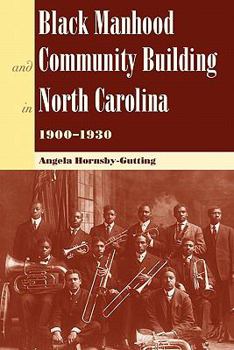Black Manhood and Community Building in North Carolina 1900-1930
(Part of the New Perspectives on the History of the South Series and New Perspectives on the History of the South Series)
"A thorough, sympathetic, fair, and balanced treatment of an important topic. Through careful research, Hornsby-Gutting brings a searching analysis to the cultural responses of black male leaders to disenfranchisement and Jim Crow segregation."--Paul David Escott, Wake Forest University "Hornsby-Gutting's examination of the involvement of black men in the institutional life of their turn-of-the-century North Carolina communities expands...
Format:Paperback
Language:English
ISBN:0813036798
ISBN13:9780813036793
Release Date:January 2011
Publisher:University Press of Florida
Length:264 Pages
Weight:0.85 lbs.
Dimensions:0.6" x 6.0" x 9.0"
Customer Reviews
0 rating





